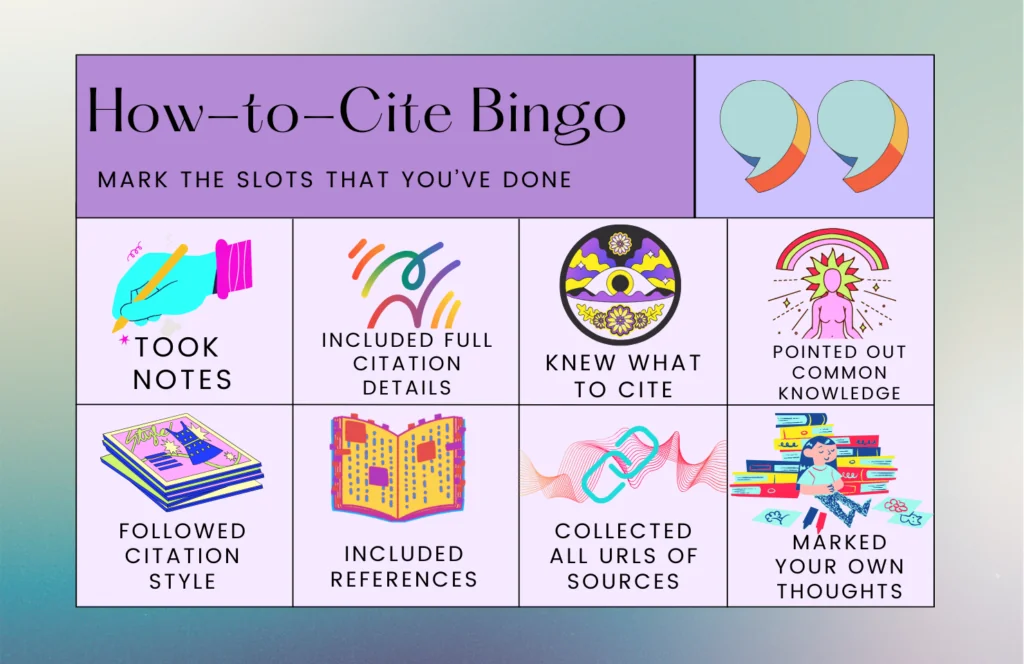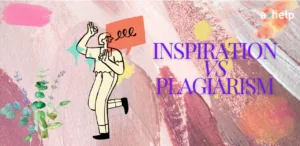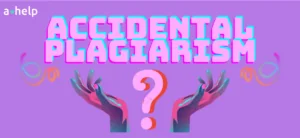Over recent years, the problem of plagiarism has become such a huge case in academia, that you hear everyone screaming about it from all corners. And how long we wouldn’t spend scrolling through Quora and Reddit, we still saw one or two posts pop up once every while that showed the students’ stories of getting caught or accused of plagiarism. To be fair, anyone can avoid getting themselves in such situations by being thorough with their research, using quality paraphrasing techniques, and generally writing everything themselves. Yet, every single student is probably thinking: “What is one way to avoid plagiarism?”. We can tell you – it’s proper citing and referencing! We have been screaming about it for over a month now, so let’s finally settle down why it is the one major solution.

✅ AI Essay Writer ✅ AI Detector ✅ Plagchecker ✅ Paraphraser
✅ Summarizer ✅ Citation Generator
Citing – The Key to Zero Plagiarism
Diligent and accurate citing will take you a long way, especially when it comes to academic writing. This process, known as referencing, involves clearly marking the origins of ideas, phrases, or data that have been derived from other sources. The importance of proper citation cannot be overstated—it is the key to maintaining academic integrity and giving due credit to each contributor for their work.

When writing, especially if you are deep in the trenches of the process, it’s easy to blur the lines between your original thoughts and the insights you’ve gathered from various sources. The best you can do to prevent this is note-taking. Label your notes to distinguish between your ideas and those borrowed from others. Use direct quotes and full citation details (those that include author, year, and source) for any material taken verbatim. This a)helps in organizing your research, and b)simplifies the process of referencing when drafting your paper.
Moreover, you have to understand what needs to be cited specifically. Any information that is not common knowledge, including ideas, data, and direct quotes, must be credited to its original source. Even content from your previous works should be cited to avoid self-plagiarism. On the other hand, widely acknowledged facts and the results from your experiments typically do not require citations.
By integrating these practices into your research routine, you create a clear roadmap for your intellectual journey. This not only helps in avoiding the pitfalls of plagiarism but also enhances the credibility and reliability of your work. Remember, when in doubt, it’s safer to cite. With the aid of current style manuals and citation management tools like EndNote, Reference Manager, or AcademicHelp Citation Generator, you can make your referencing precise and compliant with academic standards.
Paraphrasing – A Great Addition to Your Plagiarism-Fighting Arsenal
Yes, the major solution lies in proper referencing. This, however, doesn’t mean that there aren’t any other ways of minimizing your plagiarism levels in writing. And paraphrasing is one of them. You can always turn to rewriting tools but hey, even then you need to distinguish between good rephrasing and a bad one.
We said it many times before and we will say it again: good paraphrasing requires a deep understanding of the original text and expressing its ideas in your own unique voice. This approach shows your grasp of the material and maintains the integrity of the original idea without copying it word-for-word. Thus, when you paraphrase, you should fully rewrite the author’s ideas in your own words, so that the essence of the message stays the same. If there are any specific terms or phrases that are unique and you choose to use them as they are, these should be put in quotation marks to denote direct quoting. Additionally, don’t forget to add properly formatted citations, whether paraphrasing or quoting, to attribute the original author and avoid plagiarism.
However, there are times when paraphrasing might not suffice or be appropriate. In such cases, quoting directly becomes a much better option. Here are guidelines to help you decide when to paraphrase and when to quote:
| Situation | Paraphrasing | Quoting |
|---|---|---|
| Presenting general information | Preferred, as it allows the integration of information in a fluid manner that complements your narrative. | Less ideal unless the specific wording is crucial for understanding. |
| Using exact definitions or data | Less effective, as changing the author’s original wording could alter the meaning. | Necessary to preserve the precision and authority of the original text. |
| Analyzing language or style | Not suitable, as the original wording is critical for analysis. | Essential, as it allows discussion about the language used by the author. |
| Conveying authority and original context | Adequate for general understanding but might lose the impact of the original wording. | Preferable when the authority of the original text adds weight to your argument. |
If you decide to use quotes rather the rewrite the text in your own words, make sure you use properly copied text, enclose it in quotation marks, and accompany everything by a citation that sends the readers to the original author.
AI Tools – Another Gateway to The Plagiarism-Free Writing
Considering the modern technological opportunities we have (yes, we are talking about AI), it would be a pity not to use them to your advantage. Far from being merely a shortcut to generate content, AI tools like ChatGPT can assist students at various stages of their writing—from brainstorming ideas to refining drafts. We understand that and we don’t see that as a crime. Nonetheless, it is important to use these tools correctly and responsibly.
In such a context, AI-powered plagiarism checkers can become an invaluable addition to your toolkit. Tools like Turnitin or AcademicHelp Plagiarism Checker can assist you in comparing your work against a vast database of publications and web pages. In seconds they will highlight any segment that too closely resembles existing texts, giving you the percentage of content that needs closer attention. As such, these tools can be used by students to check their work preventively. Such a proactive approach allows for identifying and correcting issues like overlooked citations or inadequately paraphrased material, thereby guarding you from accusations of academic dishonesty.
Overall, while AI tools can significantly boost the research and writing process, they must be used as part of a broader strategy that includes thorough research, careful note-taking, and original synthesis of information. The goal should always be to improve understanding and contribute genuinely original insights into your topic. Thus, when used thoughtfully, AI tools not only prevent plagiarism but also enrich academic work, making research and writing more thorough, efficient, and generally interesting.
The Main Point
It doesn’t matter what you write or how you write it, plagiarism can find its way into your texts. To not let that happen, the one major thing you can do is keep track of ALL the used sources and then include them in your work in the form of in-text citations and references. Make sure you insert them all in the right places and format everything according to the citing guidelines chosen by your supervisor. This will certainly help you lower the possibility of plagiarism to zero.
FAQ
Follow us on Reddit for more insights and updates.





Comments (0)
Welcome to A*Help comments!
We’re all about debate and discussion at A*Help.
We value the diverse opinions of users, so you may find points of view that you don’t agree with. And that’s cool. However, there are certain things we’re not OK with: attempts to manipulate our data in any way, for example, or the posting of discriminative, offensive, hateful, or disparaging material.